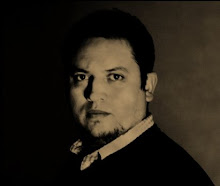Reflections on Islamic Art and Architecture
Sunday, May 27, 2007
It's official now: Khalil Al-Zahawi known as the Iraqi "elder of calligraphers" (shaykh al-khattatin) was killed outside of his house in Baghdad (mostly Shiite district of "New Baghdad") by a group of unknown armed thugs. It's believed that this is a sectarian crime (Al-Zahawi is known to be a Kurd and he was probably Shiite). Al-Zahawi has been known for his Persianate oriented style (pseudo-ta'liq script).
Here is a short biography (Ar.) pointing out notabely that he was trained by the Iranian calligrapher Zerin in 1975 and that he then "invented his own style" with his own school and gallery in Saddam's Arts Center of modern arts.
More details are found here in a recent interview (Ar.)
Some of his works could be found here
Wednesday, May 09, 2007
Iranian architect to expand the Haydari Yard in Najaf

According to a Shiite news website an Iranian architect named 'Zargar' (could it be 'Akbar Zargar'?) proposed to the deputy governor of Najaf some expansion plans of the holiest Shiite shrine: Al-Sahn Al-Haydari (Haydari Yard aka Imam Ali Shrine and Mashhad Imam Ali). This might increase the already current strong suspicions of a high involvment of Iranians in the managment of Shiite life in Iraq especially in cities such as Najaf and Karbala.
About the Haydari Yard.
Wednesday, May 02, 2007
A conflict between 'Islam and secularism'?
Imad Hajjaj, the cartoonist of Al-Quds Al-Arabi, is among the best young arab cartoonists. His today's (May 3d) cartoon is interesting from the point of view of an Islamic art historian such as me. The four cornered minarets, one of the visual markers of the Ottoman imperial mosque, is being used to show the current contrast in Turkish politics. Yet I wouldn't chracterise what's happening now as a conflict between "Islam and Secularism"... I visited Turkey and I was always following the politics there especially the way the Islamist movements (with their constant and impressive/silent metamorphisis) are evolving. First I must say that the current Islamist governing party (AKP: Adalet ve Kalkınma Partisi ) is a very interesting composition that had creatively found some balance between a very strong feeling (perhaps even of the majority of the Turkish population) supporting the presence of Islam as a generic background of political decision and the inclusion of Turkey into all kinds of processes facilitating the modernization effort. I lived sometime in Istanbul where Erdogan, the AKP's leader, was a mayor (before winning the elections and becoming the prime minister) and I must say he was higly respected by various sectors of the population especially those involved in buisness. Secondly, the political forces opposing the AKP are mostly traditional forces (from the left and the right) that lost momentum and they're clearly trying to find a new platform unfortunately not on the basis of what they'd really be able to bring to the current modernization process but rather on radicalizing the crisis of power based on an empty claim. Because you'd have really to be very superstitious to think that the very simple fact of the entrance of a veiled woman (the wife of the supposed Islamist candidate) to the presidential palace would be a threat to the 'secular' sysetm. By the way I'm putting quotes on secular because in Turkey secularism is not really the right word to describe the complicated current system. For instance between the 1950s and the 1980s the process of inserting back Islamic religious education in Turkish public schools was established by the very traditional forces that are claing now to be the defenders of 'Kemalist secularism'. The presence of a governmental body (Diyanet İşleri Başkanlığı) that oversees the Islamic religious institutions is another example of this unsecular attachment between religion and state. So I'd be really careful to characteriz what's going on as a conflict between 'Islam and secularism': neither the AKP is claiming to be THE voice of Islam (and that's why it's considered an apostate movement by Islamist hardliners in the Islamic world) nor the other forces really represent secularism. It's not a conflict of two different ideological systems but rather a political conflict between the old and the new establishments within a metamorphised system.




